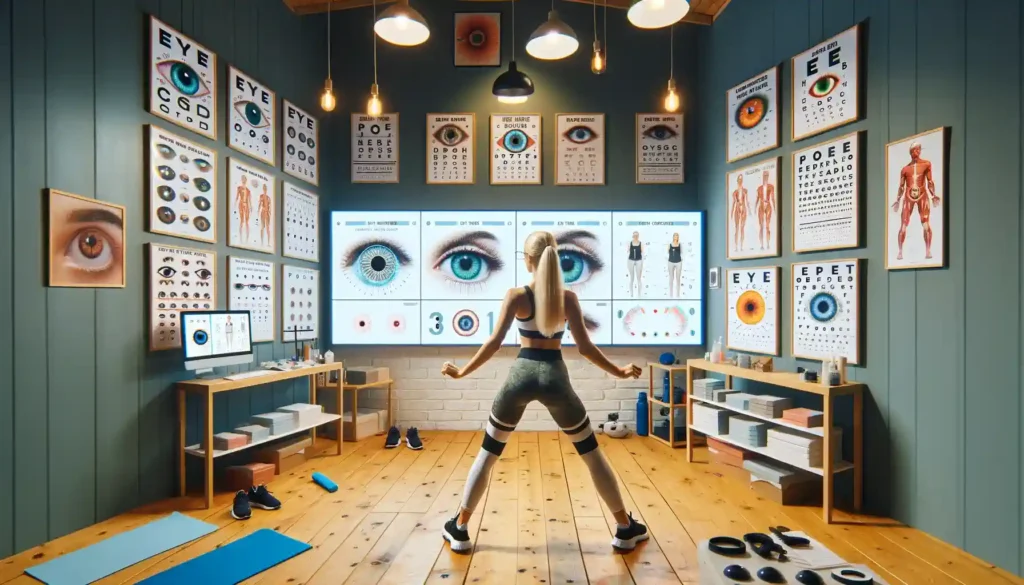Our eyes receive a lot of visual information. This constant connectivity with digital devices is beneficial in many ways, but comes with its own set of challenges, especially concerning our eyesight and overall eye health. Digital eye strain, characterized by dry eyes, headache, blurred vision, and neck pain, has become increasingly common. As a response to this modern dilemma, a concept known as “digital detox” has gained popularity. This article explores how a digital detox can not only mitigate eye strain but also enhance eyesight naturally, offering a comprehensive guide to embracing this transformative journey.

Understanding Digital Eye Strain
Digital eye strain is a condition arising from prolonged use of computers, smartphones, tablets, and other digital screens. It stems from the bright unnatural light emitted by screens, which can penetrate deeper into the eye and potentially harm the retina. Additionally, focusing on screens for extended periods can reduce blink rates, leading to dry and irritated eyes and myopia.
The Foundation of Digital Detox
The point is to reduce visual stress, focus on alternative activities in the real world, and support eye health and well-being, including eyesight. To create regular breaks for your eyes to recover from screen time.
15 Benefits of Descreening Vision for Better Eye Health
- Reduces Bright Light Exposure: Limiting screen time, especially before bedtime, can decrease exposure to bright unnatural lights, which is linked to digital eye strain and disruptions in sleep.
- Promotes Blinking: Less screen time means more natural blinking, which moisturizes the eyes, reducing the risk of dry eye syndrome and irritation.
- Encourages Outdoor Activities: A digital detox naturally leads to spending more time outdoors. Exposure to natural daylight has been shown to slow down the progression of myopia (nearsightedness) and improve mood and focus.
- Reduces Eye Strain: Limiting screen time helps prevent the fatigue of eye muscles caused by prolonged focus on digital devices.
- Lowers Risk of Dry Eyes: Screens can decrease blink rate, leading to dryness. Descreening helps maintain natural eye moisture.
- Enhances Sleep Quality: Blue light inhibits melatonin production, affecting sleep. Less screen time results in better sleep quality and duration.
- Decreases Risk of Myopia: Spending more time outdoors and less on screens can slow or prevent the progression of myopia, especially in children and adolescents.
- Improves Attention and Focus: Regular breaks from screens can enhance cognitive functions, including attention span and focus.
- Encourages Physical Activity: Reducing screen time frees up more time for physical exercise, promoting overall health and reducing eye-related issues linked to sedentary lifestyles.
- Boosts Mental Health: Screen time, particularly on social media, can be linked to anxiety and depression. Descreening can improve mental health and emotional well-being.
- Strengthens Interpersonal Connections: Less time on devices means more opportunities for face-to-face interactions, strengthening relationships and social skills.
- Promotes Healthier Sleep Habits: By avoiding screens before bedtime, you encourage a healthier sleep routine, contributing to better overall health and mood.
- Enhances Peripheral Vision: Outdoor activities and less focus on screens can improve peripheral awareness, reducing tunnel vision associated with excessive screen use.
- Increases Productivity: Limiting distractions from screens can make time spent on tasks more productive and efficient.
- Supports Neuroplasticity: Engaging in a variety of non-screen activities can stimulate the brain in new ways, supporting cognitive health and flexibility.
- Reduces Headaches and Migraines: Overexposure to screens can trigger headaches and migraines. Reducing this exposure can alleviate these symptoms.
- Improves Circadian Rhythms: Exposure to natural light during the day and less blue light at night helps maintain healthy circadian rhythms, improving overall health and energy levels.

The Eyesight Academy’s ultimate guide to enhancing your vision naturally and sustainably
Dive deep into our comprehensive program, where we blend the latest scientific research with time-tested natural practices to bring you a holistic approach to eye health. From mastering effective relaxation techniques to engaging in eye exercises that actually work, our course is designed to empower you with the knowledge and tools you need to improve your eyesight.
But it’s not just about exercises; we cover everything from nutrition to lifestyle changes that support optimal vision. Whether you’re dealing with digital eye strain, myopia, hyperopia, or just want to maintain your current vision, we have tailored strategies for everyone.
Implementing a Digital Detox
Embarking on a digital detox doesn’t mean renouncing all digital devices outright. Instead, it involves intentional and mindful use of technology. Here’s how to get started:
1. Set Clear Goals
Define what you aim to achieve with your digital detox. Is it to reduce eye strain, improve sleep quality, or enhance your overall well-being? Having clear objectives will help you stay motivated.
2. Gradually Reduce Screen Time
Sudden withdrawal from digital devices can be challenging and unrealistic for many. Instead, start by gradually reducing your screen time each day, particularly during the evening hours to minimize blue light exposure before bedtime.
3. Establish Screen-free Zones
Designate certain areas of your home, such as the bedroom or dining room, as screen-free zones to encourage mindfulness and relaxation.
4. Engage in Alternative Activities
Replace the time you would typically spend on digital devices with activities that support eye health, such as reading physical books, practicing eye relaxation techniques, or engaging in outdoor exercises.
5. Use Technology Wisely
When using digital devices, adopt practices that reduce eye strain, like adjusting screen brightness, and getting regular breaks from screens.
Beyond the Detox: Lifestyle Changes for Enhanced Eyesight
While a digital detox can significantly contribute to better eyesight and overall health, lasting improvement comes from integrating these practices into your daily life.
- Adopt a Vision-Healthy Diet: Incorporate foods rich in omega-3 fatty acids, vitamins C and E, zinc, and antioxidants that support eye health.
- Practice Regular Eye Exercises: Simple exercises can strengthen the eye muscles, improving focus and reducing fatigue.
- Stay Hydrated: Adequate hydration is crucial for maintaining eye moisture and overall health.
Conclusion
A digital detox offers a path to not only mitigating the adverse effects of prolonged screen use but also enhancing eyesight naturally. By adopting a more mindful approach to technology use, coupled with lifestyle changes that support eye health, we can protect and improve our vision in the digital age. Remember, the goal is not to eliminate digital devices from our lives but to create a balanced relationship with technology that prioritizes our health and well-being.

